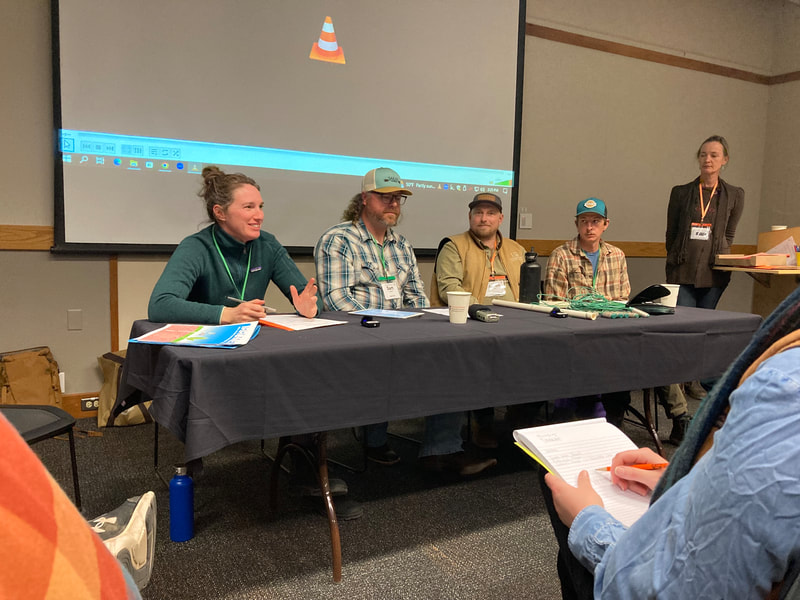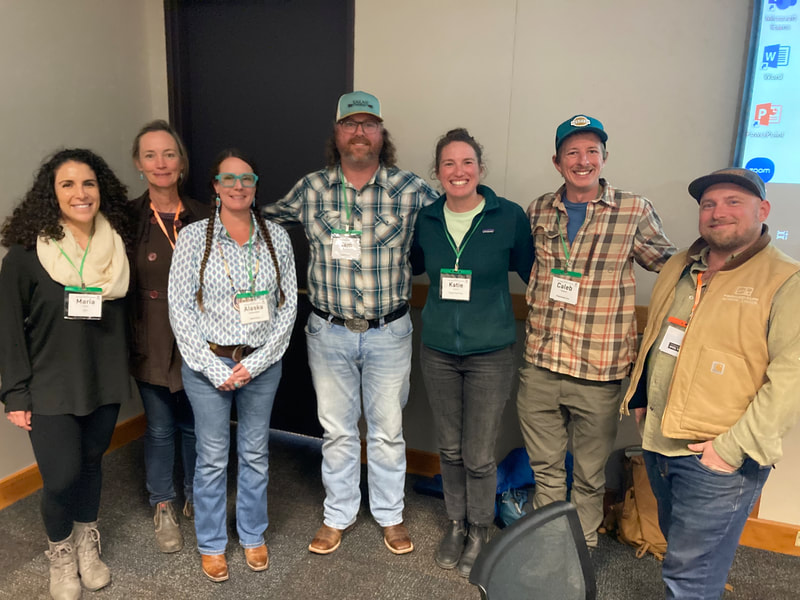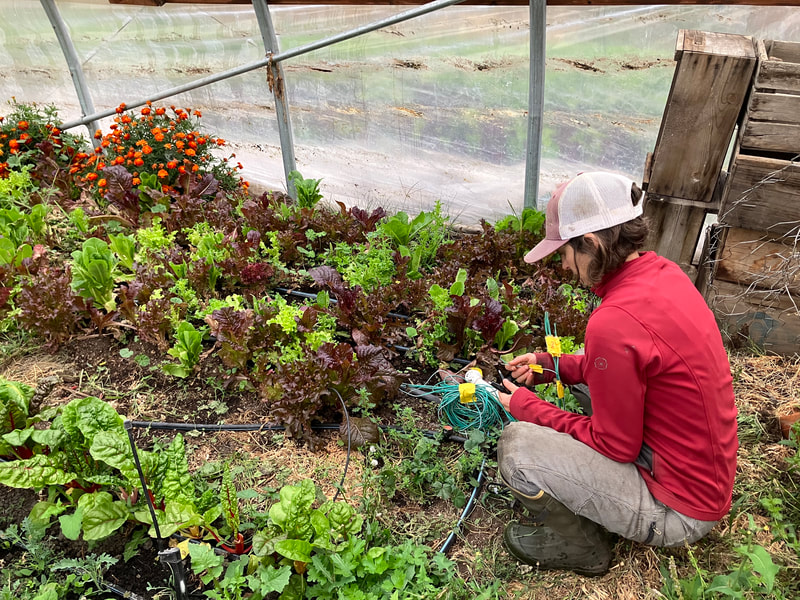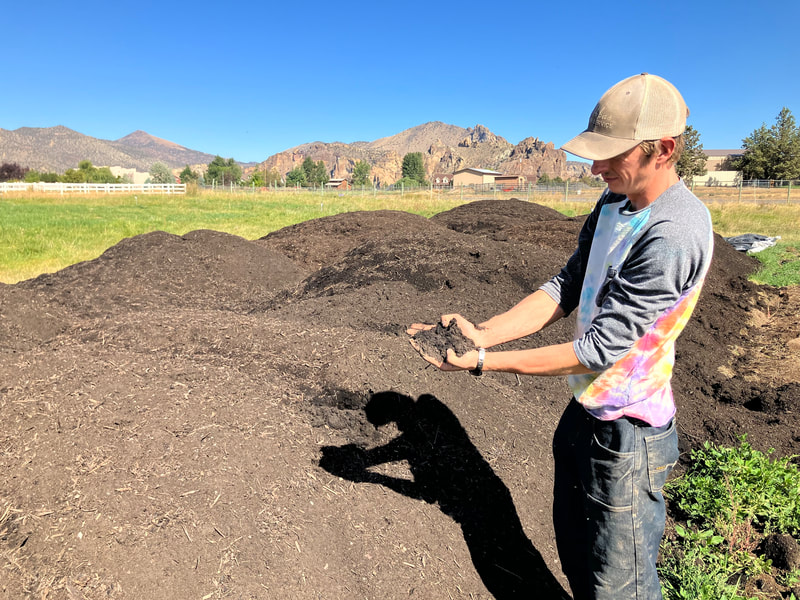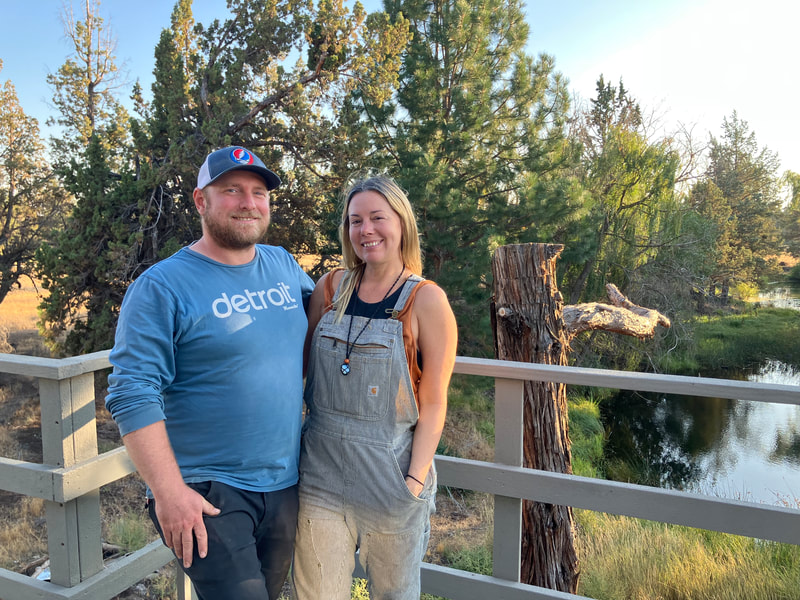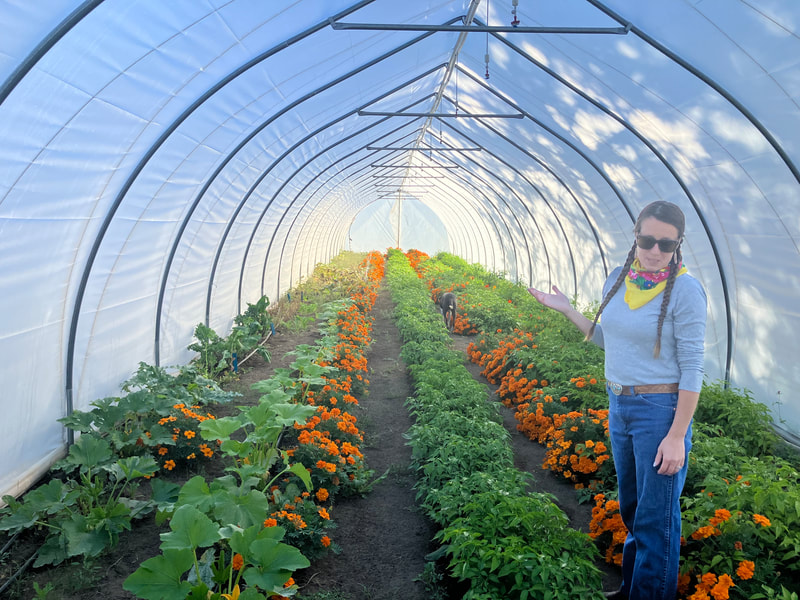Sweet Union Farm received a Western SARE Farmer/Rancher grant during the 2022 season.
Check out our video below to learn more about the results!
You can also read more about the project in a blog post from Oregon Climate & Agriculture Network (OrCAN)
Project team:
Technical advisor: Maud Macrory Powell, OSU Extension
Data Analyst: Lucas Nebert, Ph.D Environmental Science, Studies & Policy; M.S. Soil Quality
Videographer: Kristin Pool, Krisin Pool Productions
Irrigation consultant: Maria Zamora Re, OSU Extension
Principal investigator: Katie Swanson, Sweet Union Farm
Farm participants:
Sweet Union Farm, Klamath Falls, OR
Fibonacci Farm, Redmond, OR
Nella Mae’s Farm, Cove, OR
Sungrounded Farm, Terrebonne, OR
Sakari Farms, Tumalo, OR
Project Summary:
This project explores how no or low-till practices can increase drought resilience. Farms in dry regions of Oregon are heavily impacted by climate change, particularly drought. Many of these farms employ creative practices to adapt and conserve water, but research specific to their region is sparse. Additionally, due to geographic isolation and time constraints, many farmers face these challenges alone.
This project will establish a group of five small-scale vegetable farms in central and eastern Oregon to monitor the impacts of no/low-till practices on the level of plant-available water. Each farm will serve as a case study and will test two different practices while measuring water tension and collecting weather data. Since farmers don’t have time to visit each other during the growing season, videos will be taken at each farm site during the summer. Later in the off-season, the network will meet for discussion and share best practices. A video will be assembled as a multi-farm virtual tour and the cohort will present their findings at the OSU Small Farms Conference. The presentation and video will be converted to a blog post and webpage and distributed through regional agricultural networks.
Empowering producers with data and opportunities to network will be essential in our efforts to farm in a changing climate. Farmers east of the Cascades have much to offer the discussion as they are already experiencing severe water shortages. This project may result in a broader network of drought-prone farms to serve all regions in facing the challenges ahead.
You can see full project profile on SARE website.
Below see final presentation of data results by data analyst, Lucas Nebert.
Technical advisor: Maud Macrory Powell, OSU Extension
Data Analyst: Lucas Nebert, Ph.D Environmental Science, Studies & Policy; M.S. Soil Quality
Videographer: Kristin Pool, Krisin Pool Productions
Irrigation consultant: Maria Zamora Re, OSU Extension
Principal investigator: Katie Swanson, Sweet Union Farm
Farm participants:
Sweet Union Farm, Klamath Falls, OR
Fibonacci Farm, Redmond, OR
Nella Mae’s Farm, Cove, OR
Sungrounded Farm, Terrebonne, OR
Sakari Farms, Tumalo, OR
Project Summary:
This project explores how no or low-till practices can increase drought resilience. Farms in dry regions of Oregon are heavily impacted by climate change, particularly drought. Many of these farms employ creative practices to adapt and conserve water, but research specific to their region is sparse. Additionally, due to geographic isolation and time constraints, many farmers face these challenges alone.
This project will establish a group of five small-scale vegetable farms in central and eastern Oregon to monitor the impacts of no/low-till practices on the level of plant-available water. Each farm will serve as a case study and will test two different practices while measuring water tension and collecting weather data. Since farmers don’t have time to visit each other during the growing season, videos will be taken at each farm site during the summer. Later in the off-season, the network will meet for discussion and share best practices. A video will be assembled as a multi-farm virtual tour and the cohort will present their findings at the OSU Small Farms Conference. The presentation and video will be converted to a blog post and webpage and distributed through regional agricultural networks.
Empowering producers with data and opportunities to network will be essential in our efforts to farm in a changing climate. Farmers east of the Cascades have much to offer the discussion as they are already experiencing severe water shortages. This project may result in a broader network of drought-prone farms to serve all regions in facing the challenges ahead.
You can see full project profile on SARE website.
Below see final presentation of data results by data analyst, Lucas Nebert.
| Final Results by Lucas Nebert | |
| File Size: | 1118 kb |
| File Type: | |

